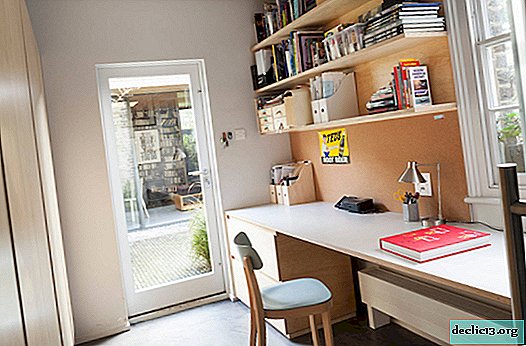How to learn to play poker from scratch

Poker is a game that you cannot help falling in love with. Everyone who at least once sat down at the gaming table was imbued with the charm of this representative-class card game. The intense and concentrated atmosphere that reigns in the room at the time of the action is fascinating and fascinating.
To win the poker game, it’s not enough just to be able to penetrate the state that absorbs the whole time. A thorough study of the rules, strategies and tactics of the game will allow over time to begin to dominate rivals, multiplying not only experience, but also the financial benefit of the process.
Game preparation

Psychological attitude
Control of the internal psychological state is an aspect that strongly influences the course of each game. It determines the ability to adequately assess yourself and your capabilities, regardless of the situation that may develop at the table.
Panic attacks sometimes accompany many newcomers. Often they arise at times when a person realizes that his presence at the table is limited to a few more minutes, after which participation in the party will be completed and he will lose money.
There are times when a person, playing, experiences some kind of unnatural feeling of inner heaviness. Even if the party is going well. After several hours of such psychological stress, the player’s emotional state takes a long time to recover. Stress of this intensity, provoking an inadequate perception of what is happening at the table, is found not only among young players who have recently mastered poker, but also among experienced fans of green poker cloth.
According to the terminology of the game, any state in which a person cannot adequately assess the situation is called tilt.The cause may also be excessive fatigue, which makes it difficult even to make basic decisions. There are situations when the fear of losing can lead to a dead end by one’s own reluctance to carry out any decisive actions at the table.
Training psychological stability helps to cope with stress of any complexity. So the condition will not affect the ability to work and the ability to make sound decisions. By tracking internal experiences, the player will be able to control his mood, controlling the quality of the game. He will be able to avoid tactical mistakes, while analyzing rivals strategy.
Brain Warm Up

The game of poker is not only mechanical. During the session, thought processes are actively involved, and in order to be as effective as possible, it is necessary to “stretch” the brain a little, bringing it to the desired condition. This works the same way as stretching the muscles before the upcoming physical activity: it helps the quality of the task and eliminates the discomfort that usually occurs after.
The big mistake is a complete refusal to warm up before the game. It is often admitted not only by beginners. The concept of a warm-up preceding a poker game needs to be regarded in the context of sport terminology in order to understand its true value.
This procedure will help you realize until the end how serious the poker session will be, because many beginner players do not perceive this fact. A game that is not taken seriously initially can not be rainbow. Warm-up is a small pre-game that helps to improve techniques and develop the necessary skills outside the gameplay.
The average warm-up takes three minutes. But if the participants in the session are used to playing long games, they increase it to 10-15 minutes.
If this practice is just being introduced before the main game, you can try a short warm-up consisting of three stages:
- Remove from the field of view all things that could potentially distract the player from poker. At a minimum, turn off your cell phone.
- Concentrate on errors in the strategy of your game, on the elimination of which the player is now carefully working. The same applies to the improvement of practices that allow maintaining a psychological balance, the importance of which was discussed above.
- Relax while doing breathing exercises. If we are talking about a long warm-up, it includes several additional steps. They are added gradually so that the procedure can smoothly and firmly become a habit.
- Try to determine the approximate session time. This will help to structure your own game, making it stronger than in cases where the player is not constrained by the time frame.
- It is important to consider the purpose of the game. Not a specific session, but the whole game.
- In order to abstract from life's problems and worries, it is recommended that you write out all the exciting questions on a piece of paper before the game or speak out by recording on a voice recorder. Such psychological practice helps to be distracted by expressing your problems in the form of a letter or verbally, a person stops focusing on them.
- Light physical activity before the game contributes to the development of dopamine, which will provide the player with an excellent mood for the entire session. The same goes for meditation and other practices that help to relax.
- You can try to play for some short time. When a person plays fewer tables than he is used to, it is easier for him in the process to think about fixing the mistakes that he may make chronically.
Step-by-step training from scratch
To start the life of a professional player who can fully earn money using poker, you need to master the rules of the game in as much detail as possible. Understand how the poker deck differs from the usual 36 cards, learn to understand all the available combinations. Many players who have been practicing for years have argued that learning poker is a science that cannot be comprehended immediately at home. What can we say about improving skills - it can last throughout poker life.
Poker Deck Features

The deck that is being used now was created in the first half of the century before last. Then its composition began to include 52 cards.
Poker game sets are usually made of plastic. More rarely, cards are cardboard, but covered with a plastic shell. The latter can be attributed to the budget category, since they are made of short-lived material and quickly wear out.
The size of each card is 63 millimeters by 88, respectively. The colors with which the suits are decorated do not differ from ordinary playing decks of thirty-six cards. Classic black can be combined with a variety of shades of red. Recently, cards have become increasingly popular, on which all four suits are painted in different colors: red and black, blue and green.
Shirts of poker cards have two varieties: with and without margins. The former visually look more elegant and expensive. The color of the shirt often does not differ from the classic options: blue and red.
For cards to last longer, they need proper care. Between games, they are stored in a well-ventilated place, away from direct sunlight. To maintain an aesthetic appearance, make sure that the surface is not mechanically damaged, leaving scratches. When the deck needs to be washed, use a cold soapy solution.
It is important to understand that just like that, in some market layouts, in supermarkets, etc., it is not easy to buy high-quality and eye-catching poker cards, you should look for them only in specialized stores.
Description of card combinations

Any poker game requires a perfect knowledge of all the acceptable combinations. According to the rules, it is possible to make ten different options that go in a certain hierarchy according to the principle of seniority. In the list below, the significance of the combinations is indicated in descending order - from strong to weak.
- Royal Flash is a unique combination of ten cards of the same suit. According to the rules, it is considered the most significant of the exceptional cases of Street Flush. The likelihood that the player will be able to make it is very low, so the session ends extremely rarely with it. There is one big misconception regarding this combination - many consider it independent. This myth arose due to the fact that in modern pop culture, the image of the cards that make up the Royal Flash is a visual synonym for poker itself.
- "Street Flash" - the combination can be described as the oldest. It can be composed of cards of the same suit, coming one after another at their true worth. During the session, it may be that several players at the same time were able to make this combination. In this case, the winner is the one who was able to get the highest high card among all those who made it.
- "Kare" is one of the combinations that is constantly on hearing, thanks to the movies. Its essence is that of the five cards, four have the same dignity. The last, fifth card may be arbitrary. According to game terminology, it is called a kicker. When two or more players were able to collect on Kara, the one whose random card is older than the rest will win.
- “Full House” is a combination that has three cards in one composition, united by one advantage, and two more, combined in the same way (For example: three kings and two ladies). The combination is inferior to the championship of Kare and Street Flash, but is perceived as quite strong. When formulating a phrase at the table that will indicate the player has “Full House”, it is necessary to adhere to the principle “cards of one value are supplemented with cards of another value”. If several players have collected Full House, the victory is counted to the one who has the advantages of three cards higher than all.
- "Flash" - a combination is considered to be collected if a player has five cards of the same suit, collected in random order. Among players with a “Flash”, the winner is determined by the highest combination card.
- "Street" - five consecutively located advantages of cards, which may have different suits.
- "Set" ("Three") - is represented by three cards of the same value out of five. Less commonly, it is called "Trip". In a controversial situation, which is often the case, since the probability of collecting a combination is high enough, the winner determines the importance of the dignity of his kickers.
- “Two pairs” - four cards that form pairs of equally worthy cards. The fifth is arbitrary. The noteworthy situation when several players collect this combination is that with the same pair and equal kickers, the winning money is divided in half between all the winners.
- “Pair” - two cards of the same value and three crickers. When you need to divide the bank between the winners with this combination, the money is received by the one whose pair will be the eldest.
- High Card is a combination that is ranked by importance in the game as the lowest. It’s just about winning a high card. If there are several players with the same cards, all subsequent ones begin to compare.
Classic poker

Despite the huge number of different game scenarios, they all come down to single, classic rules, the purpose of which is to collect the most profitable combination among rivals.
The goal of the game itself is determined by each participant. For some it’s just a way to relax, enjoy the process, for some it’s a sport, but for most poker remains a game of chance, where it’s good to make money.
Rules and game progress
First, a person is determined who will be a dealer for all or several tables. His responsibilities include handing over and shuffling the playing deck. If players arrange a session at home, one of them can perform the functions of this figure. In specialized gambling establishments, one of the employees, a croupier, serves for this.
Since poker is a game with financial motivation, they make bets before the process. For this, special chips are used that replace money. The stake is placed in the center of the table, covered with green cloth. This is called not only a horse, but also a bank or later. A person who refuses to make a bet during the game is automatically eliminated, as he has no right to claim the money available after winning.
Between bets some time passes - intervals. Each interval ends when those at the table bet the same amount of money on the line. At the end of this period, the dealer deals or changes cards (holds tenders). Also, at the end of the interval time, each party member must open the cards, showing those present their combination. The winner is immediately determined.
Do not forget about one of the most important actions in poker - about trading. They occur in the process of several game rounds, each of which has a specific name, regulated by poker terminology.
- Preflop is the first. It starts as soon as the players are dealt two cards.
- Flop The next three cards are laid on the green tablecloth.
- Tren - the last round, involving the possibility of bidding (replacement), during which one card is placed on the table.
- River - an opportunity to bet for the last time.
According to the rules of classic poker, there are several options to determine the winner. It is not always that player whose combination is the strongest. You can understand who gets the bank by high - the highest combination, low - the lowest combination, high-low - when the money is shared by the holders of the highest and lowest combination.
Video lessonTexas hold'em
Rules and how to play
According to the classic Texas Hold'em scenario, a situation is meant when five cards are on the green cloth of the table, and the player has only two cards. Sometimes a game involves a small initial deposit, which automatically increases the bank, regardless of the amount of the bet.
Bets are placed blindly, hence the term blinds. This is done by two players watching the person who deals the cards. The first of them makes a contribution equal to the amount of half the minimum rate. The second is a whole minimum bet.
The first two cards received by the players will be closed, after which the process of trading in the first round is carried out. The next round begins when all parties to the party are given three cards, but with the shirts down. Next, another open card is placed on the table. If we are talking about a limited type of hold'em, the bet that was previously fixed should be doubled by all players. The fifth card, which is also put face down, provokes the beginning of the next round of betting between the players.
In the process of each individual trading circle, all participants of the table are given the opportunity to carry out only one action: place a bet; to equalize it on their own initiative - to agree with the bet made by the previous player; raise her; convey the opportunity to move or even exit the game.
Probability table for some starting hands in the game
| Starting hand | Number of Opponents (4) | |||
|---|---|---|---|---|
| AA | 85, 4 | 73,4 | 63,9 | 55,8 |
| KK | 82,6 | 69,1 | 58, 3 | 49,7 |
| 80,1 | 65,1 | 53, 6 | 44,5 | |
| Jj | 77,1 | 61, 3 | 49,1 | 39,9 |
| 10 10 | 75,2 | 57, 7 | 45,1 | 35,9 |
Table of starting hands that may come least likely
| Starting hand | Number of Opponents (4) | |||
|---|---|---|---|---|
| J 9s | 55,7 | 39,4 | 31,2 | 14,5 |
| J 9 | 53,2 | 36,3 | 27,8 | 10,9 |
| 10 9s | 54 | 38,8 | 30,9 | 14,9 |
| 10 9 | 51,5 | 35,6 | 27,6 | 11,3 |
| 9 8s | 50,8 | 35,9 | 28,5 | 13,3 |
| 9 8 | 48,1 | 32,7 | 25 | 9,8 |
Poker Omaha
Rules of the game
Omaha Poker is a nine-card game. The rules are similar to Texas Hold'em. The only difference is that in Omaha poker players are dealt four cards face down.
The game takes place in five stages. The first is setting up blind rates for the initial bank.Next comes the pre-flop, when each party member is dealt four cards, the shirt of which is turned upward relative to the table - they are closed. The player who starts the first round of betting is called the shooter.
The flop is a stage during which three more cards are laid out on the table in front of everyone. After this procedure, there will be another round of bidding.
Before the final showdown, there is another intermediate circle - the turn, giving the players a fourth community card and another opportunity for bidding. If after putting on the table the last, fifth common card, which is called the river, all bets were doubled compared to the original, all those sitting at the table must open to determine the winner.
How to bet and bargain

The ability to correctly set is the most valuable thing in poker, as this will not only allow you to correctly influence the course of the game, but also create an individual strategy. By choosing the right moment of the bet and its size, you don’t have to worry about serious financial losses in case of failure. With the help of a good bet, you can often manipulate opponents by working out the tactics of the game in such a way that in the end you can get the most affordable bank.
In what situations is it wise to raise your bid?
Having some experience in playing poker, a person can decide to raise the bet if he is confident in his cards, and he wants as many players as possible to discard the cards, refusing to further participate in the session. The desire to banally increase the bank or try to take control of the game also takes place, but this should be feared.
Raising bets to reduce the number of players is an excellent strategy that allows you to leave as few opponents as possible on the way to the bank. It is recommended that a beginner adhere to a tactic according to which he will be able to raise his bet to three big blinds, plus - adding each time the blind if any of the players called the big blind.
Raising the bet can be used as a bluff, since this involuntarily shows the opponents that the player raising the amount fixed up to this has a really good initial hand. True, for such tactics, you first need to master the technique of maintaining psychological balance in order to not accidentally betray yourself with "extra" emotions that are reflected in facial expressions or gestures.
Need to call bets
You need to be able to feel the moment well, the circumstances of which say that you just need to equalize the rate without raising it. Ideally, if the combination on the hands, in which the player is going to call - equalize, is so strong that it can also be used to raise.
You also need to remember that if several previous players have already supported the bet, the most logical action will be to do the same. The importance of suitable cards here also takes place.
If we summarize all the information that a player needs to know before he decides to make a bet, we can conclude: the right tactics play an equally important role here than in the rest of the game. Showing an active and aggressive attitude, making unreasonable bets, you can confuse the enemy. However, such a scheme of action is suitable only for experienced players who can cope with any situation prevailing at the playing table. It is recommended for a beginner to maintain consistency in action.
Video lessonHow to learn to win poker
Professional players formulated a list of tips, having learned which, the beginner will gradually begin to feel at the table like a fish in water, and his winnings will become larger each time.
- Increased aggressiveness to a level where the player feels comfortable. A hand showing an active attitude towards the party will be able to collect the maximum available bank.
- Patience. Increased aggressiveness is good, but most of the game needs to be in a more stable psychological state, folding more hands than playing.
- Increased attention to rivals. If you carefully monitor the people who make up the company at the gaming table, after some time you can study their tactics, the behavior of the cards, their ability or inability to bluff in critical situations.
- Analysis of the game from a long-term perspective. It is important to tune in to the fact that learning to play, having subsequently big winnings, is possible only over time, absorbing and analyzing the experience of each failure.
- Skills development. Practice is important in absolutely any business, and poker is no exception. Regular training games on online resources, at home with friends or in specialized institutions, will help to bring the skills necessary for victory to almost automatic.
Popular poker rooms on the Internet

Poker lovers often play not in offline establishments, but on special sites (poker rooms).
Which are suitable for beginners
Having minimal or not well-developed skills, it is better to choose rooms where you can compete with weak opponents. This will allow you to train by slightly increasing your capital. These resources include:
- "PlanetWin365".
- "888Poker."
- "Full Tilt Poker".
In all the rooms listed, the most comfortable game conditions for beginners are created.
For professionals
Professionals often play online not only for pleasure, but also earn stable income by choosing rooms where you can play big-time and with serious rivals. These rooms include:
- "PokerStars".
- "Party Poker".
- "Full Tilt".
All these poker sites have high ratings among users, concentrating around themselves only the most powerful poker players from around the world.
Is it possible to earn poker for a living and how much

Sooner or later, all players ask this question, because what could be better than combining your favorite business with making money. Reaching a certain level, the player understands that in the future he could fully provide himself with this, but not everything is so simple.
Indeed, professional poker players can use their favorite game as an additional source of income, but no more than an additional one. Poker is a very risky game, it is impossible to calculate the course to the end. Each time, sitting down at a table covered in green cloth, one cannot know whether you will become a winner because of him. The excitement inherent in many card game lovers can ruin everything, strip money and send it into a debt hole, which is incredibly difficult to get out of.
It must be remembered that everything must be done not only in pleasure, but also with the mind. Adhere to the rule of the "middle ground", do not go too far in pursuit of thrills and money. Self-control is above all!
Useful Tips

- "Learning is light." Everyone who decides to learn poker should remember that all game practice is accompanied by a continuous learning process. Learning should be based on both academic information and the experience of one’s own failures. This will allow you to qualitatively analyze the problems of the tactics of your game.
- You can’t be upset because of a series of failures that a beginner can pursue until he learns all aspects of a professional game: from the ability to maintain himself in a stable psychological state, to understanding when his rivals are bluffing.
- You can not play when tired. Fatigue, especially chronic, can lead to a state in which the player cannot control the strategy and level of effectiveness of the decisions made.
- You need to be able to enjoy the game, as only this will stimulate the further development of skills.
Poker is not just a gamble, but an intellectual game that will help you perfectly pump your brain if you practice regularly. People who want to learn the basics of poker from scratch should not be afraid. While playing, you can experience the deepest moral satisfaction, realizing that at some point your skills have reached a level that allows you to have superiority over potential rivals and control the game process. In addition, if you approach the issue wisely, poker can be used as a tool for additional income.

















